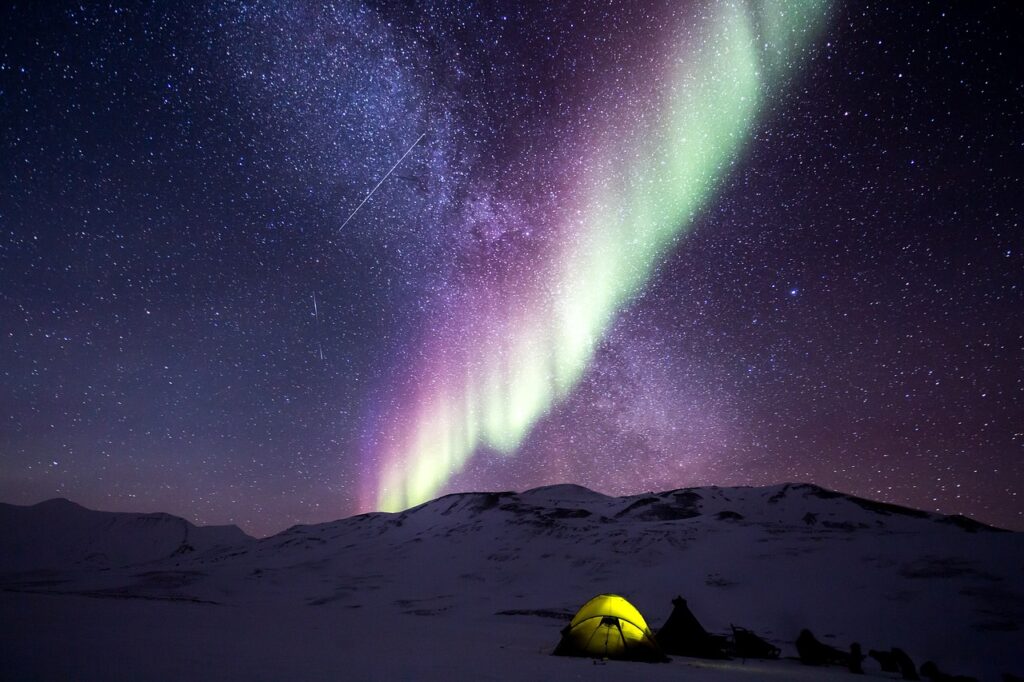Aug 8, 2012

I am so passionate about Dialogue Education and camping that I just couldn’t stop myself from bringing these two together while on a camping trip in northern Canada last week…
- Arrange your chairs, or whatever you sitting around the fire pit on, in a circle to ensure inclusion and safety. Yes, the circle is a shape and space that holds power and mystery in any situation, even camping. Many indigenous people use a ‘sacred circle’ where something is passed from person to person in a circle, giving each individual an opportunity to share whatever is on their heart/mind. It is not a time for dialogue, but is a time for deep and open sharing.
- Go for a ‘walk and talk’ in the forest. Although the ‘talk’ part is optional, the walking through woods and on beaten trails to discover hilltops, beaver dams, and open meadows is not. The outdoors can heal even the most wounded soul or stressed body.
- Get a change of scenery from time to time during the day to keep you alert and appreciating your surroundings. Just as changing the environment can energize any group of learners, moving from a walk in the forest to a cool dip in the lake to a warm seat beside the campfire, can be refreshing and invigorating.
- Use the 4As: ANCHOR your boat when you reach a good fishing spot, ADD marshmallows to your shopping list, APPLY bug repellant during bug season, and do AWAY with any unnecessary items on your trip.
- Keep your campsite clean and well-organized. Just as your learning event space will lead to more learning if everything is intentionally arranged and present, so too your camping experience will be more enjoyable and relaxing if your site is well-organized and clean. Nobody likes to climb out of their tent in the morning to find their hiking boots soaking wet from a night rain; and, everyone likes to be able to find the toilet paper easily when they most need it.
- Show respect to your neighbouring campers. As any good DE practitioner knows, respect leads to safety, which leads to engagement, which leads to inclusion, which leads to … well, a shared meal of freshly caught fish of course!
- Do your 8 steps of planning:
- The people (WHO) – Think carefully about who you are going camping with (their expectations, needs, interests, past camping experiences), for they will impact the success of the experience.
- The reason (WHY) – Remember why one goes camping: to relax. So, don’t take too many people, too many things or have too many expectations.
- The desired change (SO THAT) – Your desired change should be obvious: to come back more relaxed. That’s enough.
- The place (WHERE) – Well, it has to be in nature or it doesn’t qualify: forest, trees, water, and away from the daily grind.
- The time (WHEN) – Go as often as possible really, but at least once a year. Summertime is obvious, but the other seasons are also wonderful. I only have 1 tip for those of you living in Canada: avoid black fly season!
- The content (WHAT) – For me I guess there are a few things: forest hikes, long kayaking trips, food on the open fire, sleeping in the fresh air and warm sleeping bag, reading a good book, playing games, and sharing stories around the campfire.
- The objectives (WHAT FOR) – Well, you will know you did it when you did it! Yes, it feels that good.
- The plan (HOW) – Don’t sweat this step, because over-planning will not make for a better camping experience. Just go with the flow and see where the wind blows – and pray it doesn’t blow the smoke in your eyes!
- Be flexible. Since your #1 goal should be to relax and enjoy yourself, you don’t want to feel stress because something is not working out the way you planned or the weather is not what you had hoped or the ‘right’ food is not around for the dinner plan you had. Just go with the flow and you will feel … well, more relaxed.
- Always take an appropriately warm sleeping bag and clothes. Although in a learning event you want to always start with a ‘warm-up’, when you are camping you want to end the day feeling ‘warm enough’. There is nothing worse than feeling cold (or wet) when you are in the middle of nowhere and you have 7 more days of camping in front of you.
- Less is more. You decide what you need less of…

POST NOTE: Our first evening on our camp site this year my husband Peter was bemoaning the fact that he had forgotten to take a bottle red wine to go along to go with a wonderful foil-covered meal he had simmering over the fire. Just then he noticed our neighbour camper was enjoying just that, a bottle of red wine … to which I replied, “I have a Tip for that!”. Just have a look at Tip 6 in the above list – that would do it!
Here it is again, with more feeling:
6. Show respect to your neighboring campers. As any good DE practitioner knows, respect leads to safety, which leads to engagement, which leads to inclusion, which leads to … well, a shared bottle of red wine of course!
How are you using DE on your summer vacation?
*******
This post is by Jeanette Romkema



